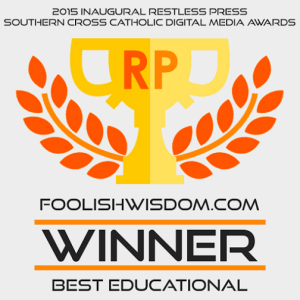In Google We Trust
 I love Google. I use that little search bar numerous times every day. If I want to know what to cook for dinner, study the history of sandpaper or find out the time in Nigeria the method is always the same…Google. And it is a rare occasion when Google lets me down. Sometimes I have only fragments of information but sure enough, more often than not, Google knows what I am after. There are even times when I know the information I need is written somewhere very close by, but instead I’ll search for the information online. There is no doubt that our ability to find information so quickly on so many popular and obscure topics is one of the primary advantages of life in the 21st century. But just as every cloud has a silver lining, so every silver lining has a cloud.
I love Google. I use that little search bar numerous times every day. If I want to know what to cook for dinner, study the history of sandpaper or find out the time in Nigeria the method is always the same…Google. And it is a rare occasion when Google lets me down. Sometimes I have only fragments of information but sure enough, more often than not, Google knows what I am after. There are even times when I know the information I need is written somewhere very close by, but instead I’ll search for the information online. There is no doubt that our ability to find information so quickly on so many popular and obscure topics is one of the primary advantages of life in the 21st century. But just as every cloud has a silver lining, so every silver lining has a cloud.
Google was given its name as a derivative of googol which is the number one followed by a hundred zeros. The mission of Google’s two founders was to organise the seemingly infinite amount of information on the web. And it would seem that they really have succeeded. With over 2 trillion searches made through Google last year it’s clear that the world is keen to get its hands on as much information as it can. And rightly so, for information is a wonderful thing. The word ‘information’ is derived from the Latin stem informare meaning a sort of “formation of the mind”. This etymological meaning helps us to see that information is not only stuff we surround ourselves with, but in a much more profound way it shapes our very thoughts and thus the way we respond to situations.
I remember seeing the phrase somewhere, ‘What you read today, walks and talks tomorrow’. In the way that the food we eat becomes who we are in a physical sense, the information we take into our minds even more truly come out in the choices and thus the people we are. We know that an increasing proportion of adults (and children) in the Western World are entrusting their physical health to McDonalds and discovering the consequences of that. An even larger proportion of the population are entrusting their minds to Google and the online world that it controls. What we need in both cases though is a balanced diet that regulates the body and the mind.
As we have established, there is no shortage of information that can be found online but raw information is only one piece of the puzzle. In a quick handful of Google searches I can find reputable looking information on the best ways to have an affair, methods to evade tax, and abortion inducing pills that can be delivered to my door. However – and this is the clincher – the ability to actually do something is not an indication that a thing should be done.
Long before anyone was able to Google anything, the world set itself on a tangent that would open the pathway for the information revolution, and that was what we now politely refer to as the ‘Enlightenment’ or the ‘Age of Reason’ (as if complete foolishness had reigned until this point). The Enlightenment was a 17th century intellectual movement that emphasised scientific method and individualism over anything to do with faith or tradition. The Enlightened mind was one that was accountable only to itself. Information was divorced from questions of ethics and morality which were said to belong to a separate realm. Now of course there is nothing wrong with reason or science, but as has been seen in the world over and over, ideas without an ethic risk becoming inhumane, because people are not simply machines or mathematical calculations. On a purely physical level an affair is simply an interaction between two persons, but in the human world an affair destroys lives and whole families in ways that are far more than physical.
Of course I am not saying that Google is bad or using the internet is somehow a pathway to infidelity. There are far more subtle examples that affect us every day. What I am saying though is that, as with all human achievements, we should take the internet with a degree of skepticism. It’s not only about what we allow ourselves to read or believe but also the thought patterns that we allow to sink into the depths of our being. As all-knowing as Google may be, the fullness of the human experience will always be more complex than any algorithm.


